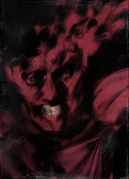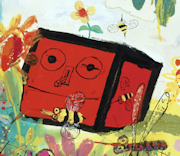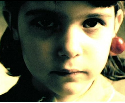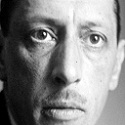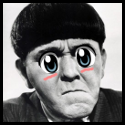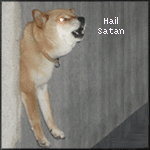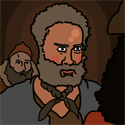|
Drone posted:Anyone know of anything good on Canada's contribution to both World Wars? More interested in 2 right now, but 1 is great too. See if you can find a cheap used copy of Desmond Morton's dated but still interesting A Military History of Canada. Vimy Ridge is regarded as the symbolic battle in Canadian military history--a quick search shows that there are dozens of books on the battle, ranging from sentimental to revisionist. Vimy by Pierre Berton probably isn't the best book on the battle, but it isn't bad. Terry Copp's No Price Too High: Canadians and the Second World War is a well regarded overview for the general public. Mark Zuehlke is a Canadian military historian who writes technical histories of battles that Canadians fought in. Not sure if you're interested in this level of detail, but his books are pretty good, espcially Breakout from Juno: First Canadian Army and the Normandy Campaign, July 4–August 21, 1944 and Ortona: Canada's Epic World War II Battle.
|
|
|
|

|
| # ? May 14, 2024 01:09 |
|
Christoff posted:I also love books about the other sides of history in general. Like "Lies my teacher told me." Things that we're led to believe or how things get watered down, the losers side, etc
|
|
|
|
Charlie Mopps posted:Liberalism: a counter-history, which shows how closely linked liberalism as an ideology was with nasty stuff like slavery, colonialism, genocide and racism, instead of the force of good its usually made out to be. There are two excellent reviews of the book on the Amazon page, worth reading to get an idea of the arguments of the book. "a brilliant and engaging exposé of the real history of liberalism as an ideology, in contradistinction to the hagiographical and justificatory self-descriptions that liberals usually give to it." I think that's three words that I've never seen used outside of a white paper before, used in the first sentence of that review. 
|
|
|
|
Railing Kill posted:Anyone have good suggestions for books about the Thirty Years War? Thanks in advance, goons! There's literally dozens of them all called The Thirty Years War. I think the most modern/up-to-date/respectable version would be Peter Wilson's The Thirty Years War: Europe's Tragedy. It's long, but it's great.
|
|
|
|
Has anyone read the Liberation Trilogy by Rick Atkinson? The third book is due out next month and I'm thinking of starting it. Looking for some thoughts/recommendations because I'm trying to decide between reading that or something in the Beevor/Hastings mold.
|
|
|
|
What's a good, readable book on the historical bible (OT/Jewish bible mainly)? About how and when the different parts were written and rewritten, how and why certain books developed the way they did, why things were left in or discarded, how it fits with the development of peoples and their god view in the general area.
|
|
|
|
Dunbar posted:Has anyone read the Liberation Trilogy by Rick Atkinson? The third book is due out next month and I'm thinking of starting it. Looking for some thoughts/recommendations because I'm trying to decide between reading that or something in the Beevor/Hastings mold. I've read the first two and am looking forward to the third. Thing is, it is a fairly detailed study on a pretty narrow aspect of the war in which nothing interesting happens, narrative-wise. But the North Africa -> Italy operations are relatively neglected, so I got a lot out of them. Hastings' books have a lot more narrative drive, if that's the kind of thing you're after.
|
|
|
|
Currently reading The Great Sea by David Abulafia, a history of the Mediterranean Sea, very good so far.
|
|
|
|
PittTheElder posted:There's literally dozens of them all called The Thirty Years War. I think the most modern/up-to-date/respectable version would be Peter Wilson's The Thirty Years War: Europe's Tragedy. It's long, but it's great. Seconding. It covers the whole thing very well without getting redundant.
|
|
|
|
PittTheElder posted:There's literally dozens of them all called The Thirty Years War. I think the most modern/up-to-date/respectable version would be Peter Wilson's The Thirty Years War: Europe's Tragedy. It's long, but it's great. Yeah, that's the problem I've been having. I want sift out the chaff before I dive into anything. Thank for the recommendation, PitttheElder and theJJ!
|
|
|
|
Re: Atkinson's Liberation Trilogy: I LOVE THIS SERIES. One of his stated goals when Vol. I came out was to refute the then (and still, somewhat)-popular belief that the Americans who fought in WWII were somehow unique among history armies, full of good guys and heroes doing good things. No. Like all armies ever, there were heroes and cowards, scoundrels and champions... it's not at all anti-American from a polemic sense, it just wants to show how the Army developed from a complete neophyte organization in '43 that almost managed to fail to invade North Africa against next to no opposition, to the much more capable if still not-up-to-Wermacht snuff force that hit Normandy. The first two volumes were very, very good, covering a lot of the indecision and inglorious failures of the earliest American generals and leadership that seems to me to always get short-shrift, if mentioned at all, in the typical Ambrose/Hastings books. I cannot wait for the last volume, already pre-ordered it on Amazon. The Thirty Year's War: Europe's Tragedy: Also backing up the other recommendations for this book. Comprehensive yet never quite tiring, it's a solid and deep review of a very complex period, and it benefits from the most recent scholarship on the topic.
|
|
|
|
Dunbar posted:Has anyone read the Liberation Trilogy by Rick Atkinson? The third book is due out next month and I'm thinking of starting it. Looking for some thoughts/recommendations because I'm trying to decide between reading that or something in the Beevor/Hastings mold. Anthony Beevor is good popular history. I don't see how anyone would think it dry or too scholarly to be entertaining. Max Hastings sucks. Well he's good if you like the angle he's coming from, but he tends to present everything in a vaguely anti-Allied (more specifically anti-American) light by selective anecdotes, but nothing as tangible as a better historian like Atkinson. His Liberation Trilogy is a warts and all history of the allied war effort, but it gives a lot better context to the whole thing. He's probably the best popular historian if you have to choose one. If you want something more modern (Vietnam to the present), go with Bing West. PittTheElder posted:There's literally dozens of them all called The Thirty Years War. I think the most modern/up-to-date/respectable version would be Peter Wilson's The Thirty Years War: Europe's Tragedy. It's long, but it's great. I was wary of this one for a long time, until I was convinced that it was comprehensive and didn't focus only on a small part of the war. Definitely a book that should be more famous. I hope a similar book is written on the era preceding this - I haven't found a good book on the French Wars of Religion (or Civil War).
|
|
|
|
Decius posted:What's a good, readable book on the historical bible (OT/Jewish bible mainly)? About how and when the different parts were written and rewritten, how and why certain books developed the way they did, why things were left in or discarded, how it fits with the development of peoples and their god view in the general area. This is sad, because I definitely read this book, or read it enough to use it in a history class in college, but I can't remember anything about it really, except that I think it fits what you want. Who Wrote the Bible?
|
|
|
|
Are there any suggestions for a good translation of Appian's histories? Adrian Goldsworthy said, in his book on the Punic Wars, that they are the most complete history of the parts Polybius left out (and were lost from Livy). The only caution is that they are more like epic poetry than history in some parts.
|
|
|
|
stawk Archer posted:Are there any suggestions for a good translation of Appian's histories? I haven't read it yet, but Penguins seems like the best one out there: Oxford doesn't have one and Landmark's is forthcoming (whatever that means) and everything else I see on Amazon looks like stuff in the public domain.
|
|
|
|
stawk Archer posted:Are there any suggestions for a good translation of Appian's histories? Penguin did a good job in their translation. Honestly I have not been able to compare it to another though as there are not a lot of versions floating about to be honest.
|
|
|
|
Decius posted:What's a good, readable book on the historical bible (OT/Jewish bible mainly)? About how and when the different parts were written and rewritten, how and why certain books developed the way they did, why things were left in or discarded, how it fits with the development of peoples and their god view in the general area. Bart Ehrman has several books for laymen in which these concepts come up regularly, even when they're not the focus. Misquoting Jesus, Forged, Lost Scriptures, and Lost Christianities are probably most directly related to what you're after. Ignore the sensational titles, by the way - Ehrman is actually a well-known Biblical scholar and very even-handed in most cases.
|
|
|
|
I figured as much. Penguin is usually good. Looking over Polybius again, I'm guessing that the reason they changed that one up was because his narrative is not always linear but is presented as more of a history of Rome as part of the larger Med.
|
|
|
|
Shimrra Jamaane posted:Anyone read Kill Anything that Moves yet? No, but I just bought it and it looks very interesting, I'm sort of still working on the Liberation Trilogy and 1453 so it'll probably be a while before I get to it but I'm all jazzed up for some more Vietnam after completing the (excellent) audio book of A Bright Shining Lie (which I'd recommend in any format, although personally I think the ending is kind of abrupt). Speaking of which, any recommendations for Vietnam books? I really liked Stanley Karnow's overall history and on the fictional side of things Matterhorn was one of the best novels I've ever read.
|
|
|
|
DeceasedHorse posted:
If you liked Matterhorn try "The 13th Valley" by John M. Del Vecchio. I think its out of print but if you've got a kindle or other e-reader you should be able to pick it up.
|
|
|
|
DeceasedHorse posted:Speaking of which, any recommendations for Vietnam books? I really liked Stanley Karnow's overall history and on the fictional side of things Matterhorn was one of the best novels I've ever read. A Rumor of War by Philip Caputo
|
|
|
|
DeceasedHorse posted:...Speaking of which, any recommendations for Vietnam books? I really liked Stanley Karnow's overall history and on the fictional side of things Matterhorn was one of the best novels I've ever read. I read Bloods: An Oral History of the Vietnam War by Black Veterans, edited by Wallace Terry around the same time I read Matterhorn. If Matterhorn's narrative elements of black radicalism and conflict in Vietnam appealed to you, I recommend giving it a look. GalacticAcid fucked around with this message at 11:53 on May 3, 2013 |
|
|
|
DeceasedHorse posted:No, but I just bought it and it looks very interesting, I'm sort of still working on the Liberation Trilogy and 1453 so it'll probably be a while before I get to it but I'm all jazzed up for some more Vietnam after completing the (excellent) audio book of A Bright Shining Lie (which I'd recommend in any format, although personally I think the ending is kind of abrupt). Neil Sheehan's A Bright and Shining Lie and David Halberstam's The Best and the Brightest are great reads about America in Vietnam and I think each won a Pulitzer back in the day.
|
|
|
|
DeceasedHorse posted:No, but I just bought it and it looks very interesting, I'm sort of still working on the Liberation Trilogy and 1453 so it'll probably be a while before I get to it but I'm all jazzed up for some more Vietnam after completing the (excellent) audio book of A Bright Shining Lie (which I'd recommend in any format, although personally I think the ending is kind of abrupt). I posted about it earlier but 'Vietnam: The Definitive Oral History Told from All Sides' is fantastic. Great piece or oral history with people involved in almost every aspect of the war from different sides. For a dryer more academic look 'America's Longest War: The United States and Vietnam, 1950-1975' by Herring is great.
|
|
|
|
To those who've read Shelby Foote's Civil War Trilogy: does it have an in-depth discussion about the neutrality of Kentucky and how that event proceeded? It's next on my list, and I'm hoping it doesn't gloss over that theater.
|
|
|
|
I don't remember too much discussion of Kentucky's neutrality. Flipping through the 1st volume quickly, I see a few paragraphs scattered here and there, talking about it in connection to other events. I may be missing something, though.
|
|
|
|
dokmo posted:I don't remember too much discussion of Kentucky's neutrality. Flipping through the 1st volume quickly, I see a few paragraphs scattered here and there, talking about it in connection to other events. I may be missing something, though. That's a shame, but thank you for checking. A pity he didn't narrate the audiobooks for the volumes himself, but at least he did the Vicksburg and Gettysburg recordings.
|
|
|
|
Comrade Cheggorsky posted:What’s wrong with his biographies of Stalin and Trotsky? Sorry for the late reply. I personally didn't find his Stalin bio to be engaging or illuminating in the least, and his Trotsky book is filled with simple errors and has been hammered by critics. http://www.insidehighered.com/views/mclemee/mclemee_on_trotsky_in_ahr
|
|
|
|
What's the general consensus on Alfred Crosby's Ecological Imperialism: The Biological Expansion of Europe, 900-1900? I'm curious if it's generally sound scholarship or is it more Jarad Diamond-esk?
|
|
|
|
Just finished Beevor's The Spanish Civil War and this is one of the first history books that has legitimately made me depressed. I liked the book but the entire conflict is so negative on both sides and all aspects of it that it was difficult to continue at certain points. I usually read 19th century stuff and tend to avoid WWI/WWII era stuff so this did make a change for me. I've also picked up Villa and Zapata, about the Mexican Revolution by McLynn, has anyone had a chance to read this?
|
|
|
|
I just picked up The Thirty Years War: Europe's Tragedy at the library and I want to thank the folks ITT who recommended it. I just started it and I'm only a couple chapters in, but it's already proving to be well-written, well-researched, and engaging. The preface addresses exactly the problem I had been having with research about the Thirty Years War: that it's all either old and makes incorrect assumptions, focuses on too narrow a view of the wider conflict, or is simply inpenetrable. Wilson goes out of his way to state his case for a fresher, comprehensive history of the conflict, written academically but accessibly. Thanks, goons!
|
|
|
|
Could any of you guys and gals recommend me some good books concerning immigration to the United States during the 19th Century? I'm mainly looking for some books about the immigration around the time for Know-Nothing Party was formed, but other time periods are fine too.
|
|
|
|
Arbite posted:That's a shame, but thank you for checking. A pity he didn't narrate the audiobooks for the volumes himself, but at least he did the Vicksburg and Gettysburg recordings. If I had one wish, it would be to wish for a million additional wishes. But my first subsequent wish would be to raise Shelbe Foote from the dead so he could read the civil war aloud for me.
|
|
|
|
Anyone have a suggestion for a good primer to the history of Russia?
|
|
|
|
My intro was A History of Russia by Riasonovsky, just because my Mom had it lying around from her days in school. Was an exhaustive book, covering from before the Kievan Rus up to around the rise of Khrushchev I think, as that's when it was written. I'm given to understand that there are newer revisions that have been updated to include everything up to the post-Soviet present, but I'm still oddly proud of my old copy.
|
|
|
|
The Amazon ebook deal of the day is Bury My Heart at Wounded Knee: An Indian History of the American West by Dee Brown for $2.99, and it is moving and poignant and altogether excellent and well worth more than $3 so go buy it.
|
|
|
Is In the Shadow of the Sword good?PlushCow posted:The Amazon ebook deal of the day is Bury My Heart at Wounded Knee: An Indian History of the American West by Dee Brown for $2.99, and it is moving and poignant and altogether excellent and well worth more than $3 so go buy it. The HBO movie is also worth seeing.
|
|
|
|
|
Alhazred posted:Is In the Shadow of the Sword good? I'm almost halfway through the book and I'm enjoying it alot. Tom Holland's assertion in the first chapter, based on his research, is that the stories about the origin of Islam, written down by islamic scholars 200 years after his life are unreliable. And so, he uses the records of the Persian and Byzantine empires as a way to create an image of what the world was like during that period. So far I've read about the failures and successes of Persian kings, Zoroastrianism, the Jews and Christianity's rise from minor cult to dominant religion of the most powerful empire of the time. I'm not sure what awaits in the latter half of the book, but so far only a small part has actually been about the origin of Islam, however I'm not dissapointed because it's well written and so far everything has been fascinating for me. I'd highly recommend it if what I wrote above sounds interesting to you, but keep in mind that it might be less about Islam than you'd like.
|
|
|
|
Shivers posted:I'm almost halfway through the book and I'm enjoying it alot. Tom Holland's assertion in the first chapter, based on his research, is that the stories about the origin of Islam, written down by islamic scholars 200 years after his life are unreliable. And so, he uses the records of the Persian and Byzantine empires as a way to create an image of what the world was like during that period. I have a slightly different viewpoint, mainly because I just studied this period before picking up Holland's book. It is a very well-written book, but the thesis behind it is a bit wonky. He tried to present it as a radical new idea of origin of Islam (that it was basically created on the border between Palestine and Arabia, and Muhammad was more likely a mercenary soldier than a merchant), but that idea has been first suggested in the 80s and very gradually watered down, as more evidence is unearthed. Fair enough for him to dismiss most Muslim sources, but the scholarly consensus (generally) is that we can get some 'truth' out of Islamic histories. Combined with non-Islamic sources, we have a decent idea of what the world was like and that most likely, the basic outline of Muhammad's life is probably accurate. Still, it was a very well written book that brings an obscure part of world history to popular culture. I even see the controversy it received (for Islamophobia) as a good thing - academia shouldn't be separated from the real world and academic debates (even one that is relatively tame, the one about 7th century Egyptian wine output is much more violent) should be known to the public.
|
|
|
|

|
| # ? May 14, 2024 01:09 |
|
I asked about books in general about Mexico in the recommendations thread and didn't get a response, so I figured I'd try here. Any good history books on Mexico? I'm mainly interested in the Mexican-American War, but I'd appreciate anything from the arrival of Cortés to the modern day. Thanks in advance! I'm particularly looking at So Far From God: The U.S. War With Mexico, 1846-1848 by General John S.D. Eisenhower, A Perfect Gibraltar: The Battle for Monterrey, Mexico, 1846 by Christopher D. Dishman, and Conquistador: Hernan Cortes, King Montezuma, and the Last Stand of the Aztecs by Buddy Levy. Anyone read any of those and have an opinion on them?
|
|
|









 Yes, it's like a lava lamp.
Yes, it's like a lava lamp.






